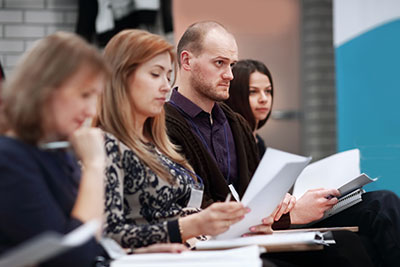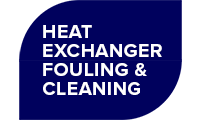2026 Conference
Synopsis
Heat exchanger fouling remains a persistent challenge that affects energy efficiency,operational reliability, and environmental performance in industries such as foodprocessing, pharmaceuticals, water treatment, chemicals, petrochemicals, and refining.While its impact has long been recognized, the nature of fouling and the approaches toaddress it have evolved significantly over recent decades.
As presented throughout this conference series, innovations in materials, surfacedesign, cleaning science and technologies, and thermal system optimization—alongside the adoption of digital tools like advanced modeling, real-time monitoring,and AI—are reshaping both the understanding and management of fouling. Theseadvances are helping industry shift from reactive to predictive strategies, withimplications for cost savings, sustainability, and process performance.
The importance of continued research remains clear. Improving our knowledge offouling mechanisms, enhancing process monitoring, and applying intelligent modelingand simulation will contribute to lowering emissions, increasing equipment life, andreducing unnecessary maintenance and downtime.
The Heat Exchanger Fouling & Cleaning Conference offers a unique platform to fosterdialogue, share new insights, and promote collaboration between researchers,technology developers, and industry practitioners. The program encourages interactionthrough presentations, poster sessions, and informal ad hoc discussions, while socialactivities—including group meals, evening receptions, and an off-site excursion—furthersupport community building.
Submissions are invited from both academia and industry, including studentcontributions. Given the complexity of fouling, all relevant work will be considered—from theoretical studies and modeling to practical solutions, case studies, and innovative technologies aimed at understanding or solving fouling challenges.
Scope
The 2026 Heat Exchanger Fouling & Cleaning Conference will explore current and emerging challenges in the understanding, mitigation, and management of fouling inheat exchangers. Emphasis is placed on industry needs, sustainability, and theintegration of digital and computational technologies, all organized around topics like
- fouling in industrial heat exchanger systems, such as:
- biofuel and renewable feedstock processes
- cooling water systems
- crude oil and hydrocarbon systems
- dairy and food production
- petrochemical systems
- power plants
- thermal desalination units
- compact, micro-, and milli-scale exchanger fouling
- fouling mechanisms: crystallization, particulate, reaction, corrosion, and biofouling
- monitoring, scheduling, and control of fouling and cleaning
- design, retrofit, and operational strategies to mitigate fouling
- surface modification and anti-fouling technologies
- cleaning techniques and maintenance best practices
- numerical modeling and simulation of fouling, including CFD and multiphysics approaches
- application of AI, machine learning, and digital twins for prediction, diagnostics, and optimization
- heat pumps and thermal energy storage in the context of fouling and energy performance
- sustainability and environmental impact assessment of fouling and cleaning operations
- digitalization and data-driven approaches to improve heat exchanger reliability and efficiency

Format
The conference begins Sunday afternoon and finishes on Thursday evening after the Gala Dinner and awards (with hotel check out on Friday, June 19). Morning and afternoon sessions provide a stimulating balance between formal presentations, small group interactions, and informal discussions. Adequate time is provided in the afternoons and social hours for ad hoc meetings and discussions. To encourage maximum interaction and to avoid parallel sessions, the number of conference participants is limited to 120. As with previous conferences, the registration fees include accommodations, meals, and social activities. All participants will stay in the conference hotel and meet for meals and evening functions.
Submit Your Abstract
Would you be interested in presenting at our conference? Your presentation would be a great opportunity to share your research with a wider audience and to network with other experts. The deadline to submit abstracts is November 14, 2025.
